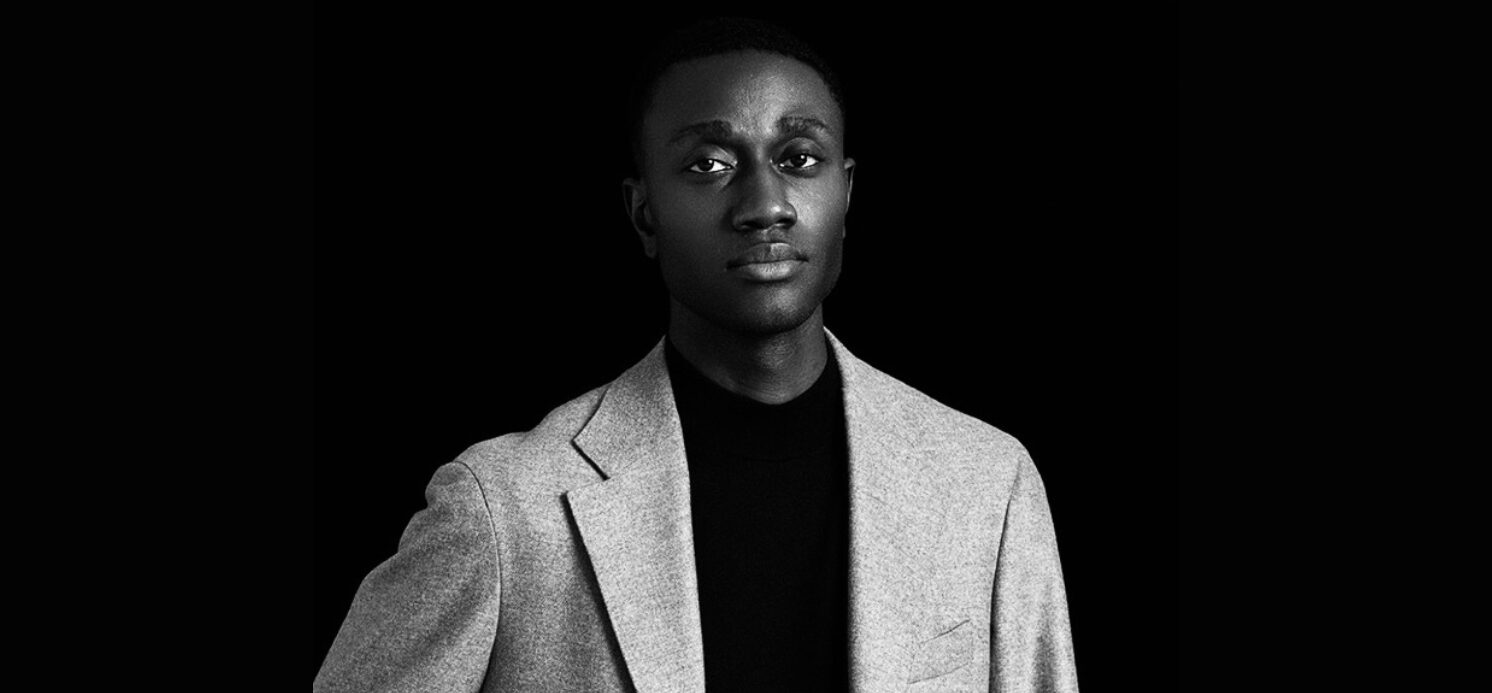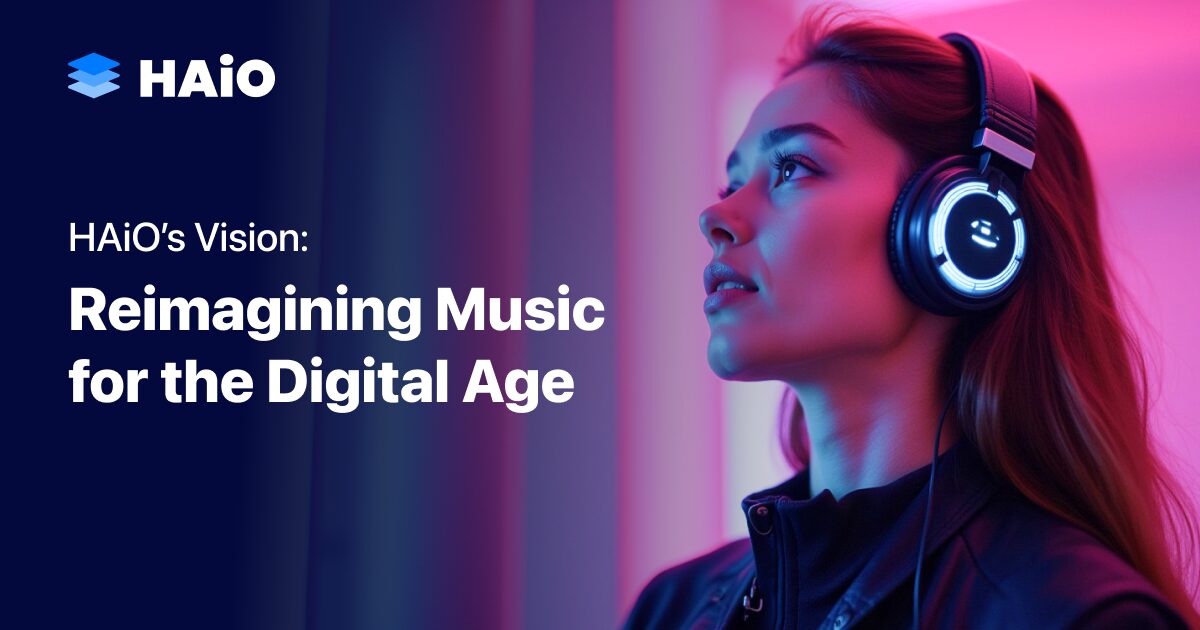HAiO stands at the forefront of a music revolution where technology is reshaping the way we experience art. Blending the power of artificial intelligence with the transparency and empowerment of blockchain, HAiO is not just rethinking how music is streamed, it’s redefining how it’s made, shared, and owned. In this exclusive interview, TechBullion speaks with Joel Roberts, the visionary CEO of HAiO, to explore how his platform is democratizing music creation, enabling co-ownership through tokenized assets, and fostering a truly participatory music economy. With over 150,000 AI-generated tracks already created and a thriving user-driven ecosystem, HAiO is paving the way for a future where every listener can also be a creator, curator, and stakeholder.
Please tell us more about yourself?
I’m Joel Roberts, CEO of HAiO. I’ve spent the past 10 years working at the intersection of media, technology, and entrepreneurship. HAiO is a reflection of that. We’re combining AI and blockchain to reimagine how music is made and owned. My job is to lead HAiO’s vision, strategy, and execution across product, partnerships, and growth.

HAiO aims to redefine music streaming by integrating AI and blockchain. Can you explain the core advantages this integration brings to both creators and listeners compared to traditional platforms?
Traditional music platforms are built around a top-down model. Artists create content, upload it, and then hope the algorithm favors them. Listeners consume music passively, and for the most part, neither side has much control or ownership over the experience. HAiO flips that model completely.
By integrating AI and blockchain, we make it possible for anyone, not just trained musicians, to generate music instantly. That’s the AI side: giving everyday users powerful tools to create, experiment, and participate in music production without needing a studio or label. It lowers the barrier to creativity in a huge way.
Then blockchain comes in and adds transparency, fairness, and ownership. Instead of streaming platforms collecting all the data and revenue behind closed doors, HAiO lets creators, curators, and even listeners co-own the music they interact with. Revenue is split transparently. Ownership is on-chain. There’s no guessing about who gets what — it’s all built into the system.
For creators, this means they finally get to own their work and earn from it directly. For listeners, it means they’re not just passive consumers; they can participate, support artists, build influence through curation, and even earn by doing it.
It’s not just a better streaming platform. It’s a more open and participatory music economy.
With over 150,000 AI-generated tracks already created, how does HAiO ensure the quality and originality of music produced by its AI agents?
We’ve built in a community feedback system that’s constantly helping the AI get better. Users can rate and review tracks through our Tune AI system, and that data feeds back into improving the models. On top of that, our Playlist and Live Agents use real listener behavior to decide what’s worth promoting, so low-quality stuff doesn’t rise to the top.
The concept of co-ownership through NFTs and blockchain sounds intriguing. How exactly does this model empower your users financially and creatively?
It’s pretty simple, if you help create or curate a track, you can own a piece of it. That ownership is recorded on-chain, and when the track earns money, you get your cut. Whether you’re a fan, a playlist builder, or someone who used our AI tools, you actually benefit from the music’s success.
Your ‘Tune AI’ service invites users to participate directly in AI music evaluation. How impactful has user feedback been so far, and what kind of improvements have you observed?
The feedback has been huge. It’s helped us figure out which sounds connect emotionally and which genres perform best in certain settings. We’ve seen the AI evolve in real-time because of that feedback. It’s become more refined, more responsive, and more aligned with real human taste.
HAiO’s platform heavily emphasizes community-driven development. How do you manage and incentivize meaningful user participation in your ecosystem?
Well, ‘community’ isn’t just a marketing buzzword for us, it’s the foundation of how HAiO operates.
From the start, we’ve designed the platform so that users don’t just engage with the product, they help shape it. Whether it’s reviewing AI-generated tracks through Tune AI, building and sharing playlists with our Playlist Agent, or participating in early feedback rounds, users are directly involved in the evolution of the platform.
We try to reward everything, from reviewing music, to building a playlist, and everything in-between. We’ve built a system where those actions earn on-chain rewards, and we’re also rolling out a reputation system so top contributors get recognized and gain access to more advanced tools.
In short, we reward participation, but more importantly, we listen to it. The feedback we get from users directly shapes what we build next.
Given the ambitious plans for your AI Playlist and Live Agents, what specific innovations do you foresee these features bringing to live music experiences and music discovery?
We’re making music that reacts to your world in real-time. Imagine a playlist that updates based on your mood or the weather, or a live stream where the music shifts depending on how the audience is feeling. That’s the direction we’re going… where music isn’t just static, it’s living and evolving with you.
Scalability is crucial in any blockchain-based application. What challenges has HAiO faced in scaling, and how have you addressed them, especially in the context of Solana’s blockchain?
Solana gives us great speed, but we also prepare for the occasional traffic jam. We’ve built some off-chain tools, optimized our indexing, and added flexibility so user actions don’t get stuck when the network’s busy. We’re also exploring multi-chain support to give users more options without losing performance. We are currently in talks with a large partner who will be able to support us once we start onboarding millions of users. There’s going to be a lot of data to store.
The global music streaming market is projected to surpass $45 billion by 2027. How do you see HAiO capturing a significant portion of this market, and who are your main competitors?
HAiO is coming at this from a completely different angle. We’re not just trying to be another streaming service. We’re building a new kind of music ecosystem, where anyone can be a creator, an owner, and a participant. That opens up a whole new layer of value.
So when we talk about capturing market share, we’re really talking about creating a new category. One that lives alongside traditional platforms but offers a more full music experience where creativity, ownership, and participation are decentralized.
As for competitors, we don’t really see Spotify or Apple Music as direct competition. They serve a very specific use case; passive listening, and they do it well. But what they don’t offer is co-creation, ownership, or direct community involvement. In Web3, there are a few emerging players experimenting with NFTs and music royalties, but most are still focused on traditional artist-to-fan models.
What sets HAiO apart is that we’re building a full-stack experience: AI-generated music, dynamic playlists, real-time feedback loops, and tokenized ownership all in one place. That positions us to not only enter the market, but to help reshape it.
Looking forward, what major developments or milestones can we expect from HAiO in the next 12 months, particularly following your upcoming Token Generation Event (TGE)?
Right after TGE, we’ll be launching new personalization features for Live Agents, more tools for creators to track earnings, and ways for users to share their playlists across other platforms. One of the most exciting rollouts is the Live Diffuser Page. This takes real-time music personalization to another level. It uses data like the listener’s time, location, season, and even weather to generate adaptive, AI-powered playlists. It’s powered by our Live Agent and is all about making the listening experience feel alive and reactive.
Outside of the product, we’ll be focusing on exchange listings, regional growth strategies, and bringing in new creators and collaborators through launchpad partnerships, ambassador programs, and events. So whether you’re a builder, a curator, or just someone who loves music, the next year will be packed with ways to get involved.
This next year is all about going from early product to full ecosystem.

































